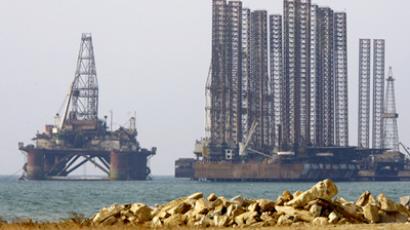IMF European department: Russian resources are not managed well
The IMF has criticised Russia for not managing its natural resources well enough. Juha Kahonen, Deputy Director of the IMF’s European Department says the resources should be conserved to provide benefit when others become exhausted.
“This huge economic potential, the oil and natural resources are a good thing, but they require managing and Russia has not done that well”, says Juha Kahonen, “It is a benefit for Russia to have these resources, but they should be managed so, that they will provide benefit for economy after oil runs out”, he added.The development of a private sector should support the Russian economy as natural resources run out, according to Mr Kahonen. “It’s important to get private sector activities flourishing and for that they need to have policies right in several areas not just the budget”, he said.“But very importantly, Russia needs a better business climate and governance and many reforms are needed to be accomplished. That is something that could take several years”.The fiscal surplus of Russia’s budget in 2011 is about 0.8% GDP or 427 billion roubles or $13.4 billion, according to Finance Minister Anton Siluanov. It is the first fiscal surplus since 2008. Despite that Mr Kahonen warned about challenges caused by possible fall in oil prices.“The budget should be formulated in a way that insulates the economy from these fluctuations in oil prices; the losses that are in the books are good, but they are not being implemented”, he said. “What Russia should do is to reduce the deficit measured in terms of non-oil, if we take out revenues from oil and gas. And current budgetary plans are not prudent because they keep the non-oil deficit very much above the level that should be sustainable for Russia”, stressed Mr Kahonen. Meanwhile Mr Kahonen is optimistic about the future of Russian currency. “The good thing for the rouble right now is that it exchange rate is flexible, it is determined by market forces and the Central Bank has been managing the situation quite well”, he said. “We would like the rouble to continue to respond to market forces and intervention to be avoided”.














